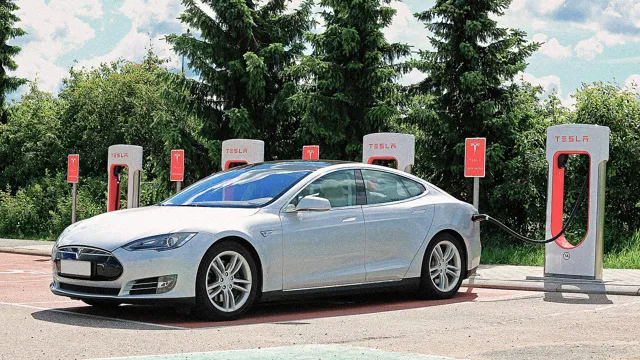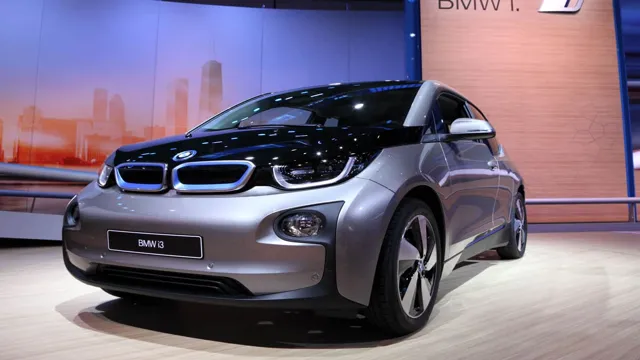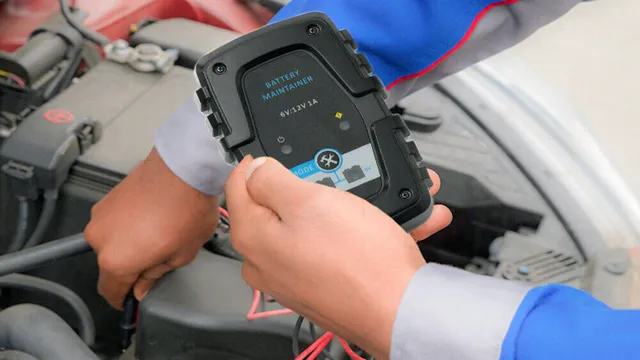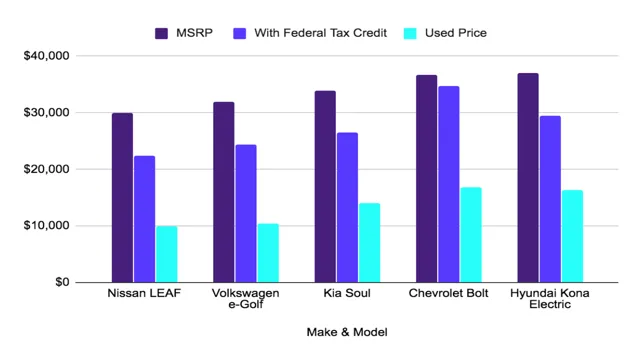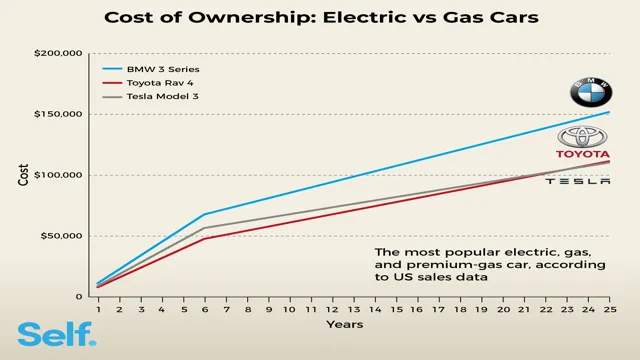Switch to Electric Cars: Save Money and Time with Cheaper Maintenance Costs!
Have you ever considered the long-term cost of owning a car? Gas, oil, and maintenance can add up quickly. However, with the rise of electric cars, many drivers are finding that they are cheaper to maintain in the long run. Electric cars have fewer moving parts, eliminating the need for costly oil changes and engine repairs.
Plus, the cost of electricity is much lower than gasoline. In this blog, we will explore the benefits of owning an electric car, including its cost-effectiveness and eco-friendliness. So, let’s buckle up and take a closer look at why electric cars may be the future of transportation.
Introduction
One of the biggest advantages of electric cars is that they are cheaper to maintain compared to traditional gasoline-powered vehicles. This is due to the fact that electric cars have fewer moving parts and require less maintenance overall. With an electric car, you won’t have to worry about oil changes, replacing the spark plugs, and other routine maintenance tasks that you would with a gas-powered car.
Additionally, electric motors are generally more reliable than internal combustion engines, which means you’ll spend less money on repairs and replacements over time. While the initial purchase price of an electric car may be higher, the long-term savings on maintenance costs can help offset the upfront investment. Overall, electric cars are a smart choice for anyone looking to save money on vehicle maintenance without sacrificing performance or comfort on the road.
What is the Cost of Maintenance for Gas vs Electric Cars?
Gas vs Electric Cars, Cost of Maintenance, If you’re considering buying a car, whether it’s gas or electric, it’s important to consider the costs associated with maintaining it. Gas cars require more maintenance than electric cars because they have more moving parts, and they need regular oil changes, filter replacements, and tune-ups. On the other hand, electric cars have fewer moving parts, which means they require less maintenance.
Additionally, electric cars have regenerative braking, which means they don’t need brake pad replacements as often as gas cars. When it comes to the cost of maintenance, electric cars are generally less expensive than gas cars. This is because they require less frequent maintenance, and the parts that need to be replaced are typically less expensive than their gas counterparts.
So, while electric cars may have a higher upfront cost, they may save you money in the long run on maintenance costs.
Cost Comparison for Maintenance of Electric Cars vs Gas Cars
When it comes to owning a car, one of the biggest expenses is maintenance and repairs. Choosing between a gas-powered car and an electric car can make a big difference in terms of cost. While gas cars have been the norm for decades, electric cars are rapidly gaining popularity due to their eco-friendliness and cost-effectiveness.
In this blog, we will compare the cost of maintaining electric cars and gas cars and see which one is more cost-effective in the long run. With the increasing demand for sustainable transportation, it’s important for car owners to know what they’re getting into and how it can affect their budget. Let’s dive in and explore the real costs of running a car.
The main keyword for this blog is “cost comparison”.
Why are Electric Cars Cheaper to Maintain?
Electric cars are cheaper to maintain than their gasoline counterparts due to several reasons. First, they have fewer moving parts, meaning there is less wear and tear on the vehicle, making it less likely to break down. This results in fewer required repairs and a longer lifespan of the car’s components.
Second, electric cars require much less routine maintenance, such as oil changes, spark plug replacements, and other services that are common with gas-powered vehicles, translating into lower maintenance costs. Additionally, with electric vehicles, the brakes are not used as frequently because of their regenerative braking system, which converts the car’s kinetic energy into electricity, substantially reducing brake wear and tear, and the need for replacements. Furthermore, electric cars are generally made with higher-quality materials that require less maintenance.
With all these factors combined, it’s easy to understand why electric cars are more cost-efficient in terms of maintenance than traditional gasoline cars. So, if you’re looking for a car that requires less upkeep and saves you money in the long run, an electric vehicle could be the perfect choice for you.
Electric Cars Have Fewer Moving Parts
One of the primary reasons electric cars are cheaper to maintain is because they have fewer moving parts compared to traditional gasoline-powered cars. Electric cars have a much simpler powertrain, which means there’s less that can go wrong. Instead of a complicated internal combustion engine, transmissions, and a myriad of other parts, electric cars have a battery, an electric motor, and a few other components.
These components require significantly less maintenance, which leads to reduced repair costs. Additionally, electric cars also benefit from regenerative braking, which saves on brake pad replacement costs. The bottom line is, with electric cars, you can save a significant amount of money on maintenance over time while also helping the environment by reducing emissions.
Electric Cars Last Longer
Electric cars are cheaper to maintain because they have fewer parts that need regular replacement. Unlike their gas guzzling counterparts, electric cars don’t have a complex fuel system, an exhaust system, or a transmission system that requires constant attention. Instead, electric cars rely on a simpler electric motor that has fewer moving parts, meaning less wear and tear over time.
Additionally, electric cars use regenerative braking, which provides a more efficient and durable braking system compared to traditional cars. Moreover, electric vehicles require less frequent oil changes, filter replacements, and tune-ups, translating to lower maintenance costs in the long run. In essence, electric cars last longer due to their simplistic design and their reliance on newer, more durable technology, leading to a lower cost of ownership over time.
Battery Maintenance vs Engine Maintenance
As electric cars become increasingly popular, one question that arises is why are they cheaper to maintain compared to traditional gasoline-powered vehicles? Well, the answer is quite simple: battery maintenance versus engine maintenance. Traditional vehicles require regular maintenance on their engines, including oil changes, filter replacements, and spark plug replacements, which can add up over time. In contrast, electric cars have fewer moving parts, and their batteries typically only require occasional maintenance, such as coolant replacement and software updates.
Additionally, electric cars don’t produce harmful emissions, reducing the need for emissions testing and related maintenance. Overall, electric cars are more cost-effective to maintain, not to mention environmentally friendly, making them a smart choice for today’s eco-conscious consumers.
Benefits of Owning an Electric Car
Electric cars have been gaining popularity for their immense benefits over traditional gasoline-powered vehicles. One significant benefit of owning an electric car is that they are cheaper to maintain. When it comes to maintaining traditional gasoline-powered cars, several mechanical parts like engine oil, spark plugs, and air filters require frequent replacements, causing a considerable dent in the owner’s wallet.
In contrast, electric cars have fewer complicated moving parts, and they do not require frequent maintenance. The only regular maintenance required is for the brakes, tires, and suspension, which are the same as traditional cars. All in all, fewer repairs and maintenance requirements mean that the cost of owning an electric car is significantly lower in the long run.
So if you’re looking for an affordable car that requires minimal maintenance and can save you money, electric cars are the way to go.
Savings on Maintenance Costs
Electric cars come with many benefits, one of which is the potential for significant savings on maintenance costs. Unlike traditional gasoline-powered cars, electric vehicles have fewer moving parts, which means less wear and tear and fewer items that need routine maintenance or replacement. For example, electric cars don’t require oil changes, transmission fluid changes, or spark plug replacements like gasoline-powered vehicles do.
Additionally, because electric cars have regenerative braking systems, which help recharge the battery while the car is slowing down, they also experience less brake wear and tear. Overall, owning an electric car can save you money over the long term thanks to lower maintenance costs.
Environmental Benefits
If you’re concerned about the environment and reducing your carbon footprint, then owning an electric car is a great way to make a positive impact. Electric cars emit zero emissions, which means they don’t contribute to air pollution and they’re less harmful to the environment than traditional gas-powered vehicles. Not only are electric cars better for the environment, but they also help to combat climate change.
By using renewable energy sources to power the car, they help reduce the use of finite resources like oil. So, not only are you helping to reduce your carbon footprint by driving an electric car, but you’re also helping to reduce our reliance on fossil fuels. Overall, owning an electric car has numerous benefits for our environment and the planet, making it a smart and eco-friendly choice for those who prioritize sustainability.
Conclusion
In the battle of combustion engine versus electric motor, the latter has emerged victorious in terms of maintenance costs. While traditional cars require frequent oil changes, transmission repairs, and exhaust system replacements, electric cars have a simpler design that requires less maintenance. Plus, electric cars utilize regenerative braking, which not only reduces wear on brake pads but also recharges the battery, saving you even more money.
So, if you’re looking to save some cash and drive a cleaner, greener car, it’s time to make the switch to electric. As the wise Benjamin Franklin once said, “a penny saved is a penny earned,” and in the case of electric cars, you’ll be saving a whole lot more than just a penny.
FAQs
How much money can someone save on maintenance by owning an electric car?
The savings on maintenance for electric cars can vary, but it is generally agreed that they are cheaper to maintain than traditional gas-powered cars. This is because they have fewer moving parts and do not require oil changes.
Are there any specific maintenance tasks that are unique to electric cars?
Yes, electric cars require specialized maintenance tasks such as battery pack maintenance and electric motor maintenance. However, these tasks are generally less frequent and less expensive than traditional maintenance tasks for gasoline engines.
Do electric cars require less maintenance than traditional cars?
In general, yes. With fewer moving parts and the absence of a traditional gasoline engine, electric cars require less maintenance overall. This can lead to significant cost savings over the lifetime of the vehicle.
Are there any downsides to owning an electric car in terms of maintenance?
While electric cars are generally cheaper to maintain, there are some downsides. For example, battery replacement can be expensive, and if the vehicle is not properly maintained, it can lead to other costly repairs. It’s important to stay up to date on proper maintenance procedures to keep costs low.

